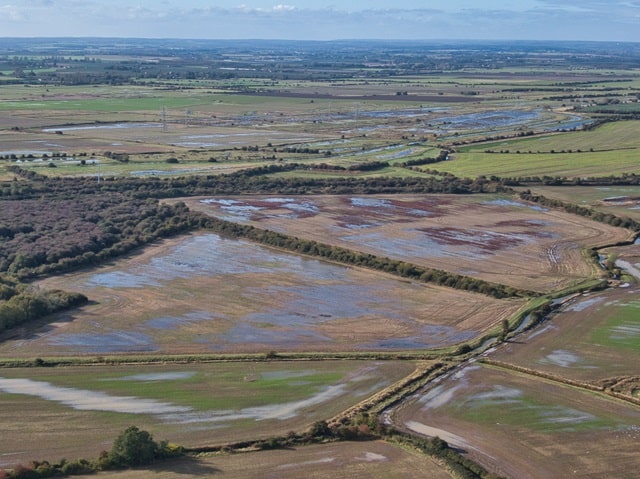
National Grid has a plan to place green energy infrastructure in Thanet. Steve Roberts, town councillor and Thanet Green Party member explains why his party is opposed to the plan:
National Grid is proposing to increase the capacity of the electricity transmission network. They want to carry more low carbon and renewable energy from where it is generated to homes and businesses across the country. Part of this is a converter station in Thanet.
Sounds wonderful. Green energy, jobs will be created, so why are Thanet Green Party and thousands of local people opposed?
It is the right thing in the wrong place. The proposed site is adjacent to Minster Marshes, a protected Site of Special Scientific Interest (SSSI) wildlife site. SSSIs are the basic building block of site-based nature conservation.
Thanet needs its only SSSI more than most parts of the UK. We have the lowest tree canopy of any district in the UK with just 4.4%. In comparison London has a 29% tree canopy.
The proposal will also cause significant damage to Pegwell Bay nature reserve.
The substation can be built anywhere in the southeast including offshore. So how and why did National Grid decide that Minster Marshes is the best place. If you or I made a list of suitable places the Marshes would be at the bottom. National Grid, quite literally could not have made a worse choice.
The answer lies in understanding National Grid. It is a privately owned for-profit company, the same as Southern Water. The proposal is the best one for their profits and the worst for the people of Thanet.
Let’s understand the scale of what is being proposed. The proposed converter station will be 28 metres high and cover 90,000 square metres. That is up to 18 football pitches.
Will it be safe? The evidence suggests not. The station will use a lithium battery energy storage system which are prone to igniting. Research by Thanet Green Party and the Save Minster Marshes campaign found that it took the fire service 10 hours to get a lithium BESS fire in Liverpool under control. The Liverpool BESS is a fraction of the size of what is proposed for Thanet.
A fire would create highly toxic fumes which winds could spread across Thanet. Imagine being strongly advised to shut your windows and not go out for 20 hours. Would schools need to shut? Would businesses need to close?
National Grid’s proposal acknowledges this fire risk. The plan asks for a 250,000-litre water tank for fire-fighting. But what are the compliance arrangements for preventing water run-off contaminating waterways? And what will the fire brigade use when this 250,000-litre water tank is emptied? Water from the Stour. The proposal is an ecological disaster. The fire will be an even bigger one.
The people of Thanet should not have this proposal and these risks dumped on them.
There are many viable alternatives. National Grid just need to put what is right for the people of Thanet before profit for their mainly foreign shareholders. National Grid plc’s top ten shareholders range from global asset management firms BlackRock and Vanguard to public pension funds, notably those of Norway and the Abu Dhabi Investment Authority.
Sir Roger Gale, MP for Herne Bay and Sandwich with West Thanet, has been crystal clear in his opposition to the proposal. He has stated that ‘it seems to me that they’re blundering ahead because they know best. Well, I’m sorry, they don’t know best.’
How can you help? Join the Campaign to Save Minster Marshes https://www.minstermarshes.com/
Write to Polly Billington, MP for East Thanet. Raise your concerns.
Ask that National Grid survey other sites. Sites that are not home to rare and endangered insects, birds, animals and plants.
We must stop the destruction of Minster Marshes. When it is gone, so are our rare animals, birds and plants.

